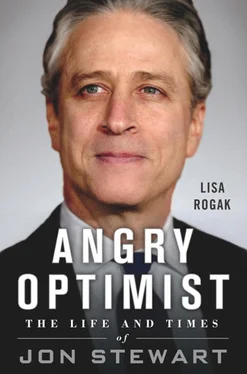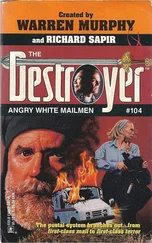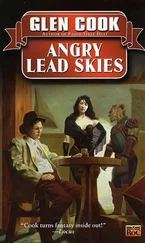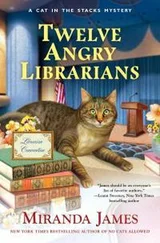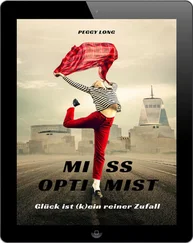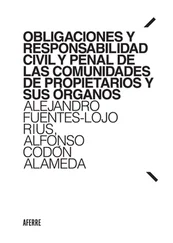Marian’s family, by contrast, took a more secular route. According to genealogist Megan Smolenyak, Marian’s father, Nathan Laskin, was born in Inner Mongolia in 1906 and grew up in Tientsin, China, home to a tiny but thriving community of Jewish entrepreneurs and salesmen, many of whom built thriving businesses as furriers. Most of the settlers had defected from the Russian army after the Russo-Japanese War ended in 1905. According to Marian, Jon took after Nathan, her father, who had a wicked sense of humor and actually subsidized his salary as a fur salesman by moonlighting as a stand-up comic in China in the early part of the twentieth century and later immigrated to Seattle to help expand the business.
Nathan helped run the Manchurian Fur Trading Company before he decided to pull up roots and try his luck at business in the United States. After first landing in Seattle, he eventually moved with his wife, Fannie, and small daughter, Marian, to Cooper Street in Manhattan, where he continued working in the family fur business. In 1940 he pulled in the princely sum of seventeen hundred dollars for the entire year.
After Donald and Marian married in the late 1950s, they settled into life in Manhattan where Marian worked as a schoolteacher and Donald worked at RCA Labs in Princeton, New Jersey.
Shortly after their first son, Larry, was born in 1960, Don and Marian decided to move from New York City to New Jersey to reduce the commuting time to Don’s job at RCA Labs. They moved into a house in Lawrenceville, the next town over, about forty miles from Philadelphia. As was typical of the era of the man in the gray flannel suit, mothers held down the fort at home while fathers spent long hours at the office, arriving home often too late to spend time with their children. And Donald was no exception.
The area around Princeton had long leaned toward white Anglo-Saxon Protestantism, and though the Princeton Jewish Center existed, that was about it when it came to Jewish culture in the area. Not only was young Jonathan teased about his height—or lack thereof—but for his name and heritage as well. “Leibotits” and “Leiboshits” were two of the more commonly hurled epithets. “I didn’t grow up in Warsaw, but it’s not like it wasn’t duly noted by my peers that’s who I was,” he said, adding, “there were some minor slurs.” One day in seventh grade he was beaten up by a group of kids while he was waiting for the bus, although he realized that he was at least partly to blame. “I was holding my books and a trellis I had made in shop and thinking, ‘How much more of a pussy can I be?’”
Jon took up the trumpet in elementary school and quickly showed that he had a talent for it. He joined a band made up of kids that played big band music with a repertoire that included songs like Glenn Miller’s “In the Mood” and Duke Ellington’s “Take the ‘A’ Train.” The band of nine- and ten-year-old musicians performed at school and community functions, and also regularly played at a home for juvenile delinquents that is today known as the New Jersey Training School.
In 1971, Jon made his first television appearance ever when the band was invited to play on a children’s show known as Captain Noah and His Magical Ark , a mainstay children’s program on the Philadelphia TV station WPVI that was a must-see for kids in the area. Captain Noah was founded by a Lutheran minister who hosted the show along with his wife. Though the show and characters were beloved by parents and children all over eastern Pennsylvania, Jon got his first glimpse of the gulf between what appeared on your TV screen and what happened behind the scenes.
“Captain Noah didn’t know anything about kids,” said Stewart. “He wasn’t a happy guy. You’d see him slide down the slide and say hi to the kids, but there was more to it than that. Essentially, Captain Noah was a mean man who craved a smoke. Those are my memories of breaking into showbiz.”
Though in later years Jon would say he had a normal childhood and only learned to develop a keen albeit thinly veiled barbed sense of humor because of his height-challenged stature, the truth is that while those may have been contributing factors, the thing that eventually set him on the path of becoming a comedic star was the direct result of a major tragedy of young Jon’s life. After all, it’s the rare—possibly nonexistent—amateur or professional comedian who doesn’t experience a childhood tragedy—or several—in one form or another.
Jon Stewart was no exception.
To be sure, Donald Leibowitz wasn’t overly warm toward his sons or his wife, but that was the norm in an age where fathers worked all day while mothers stayed home and kept house and raised the children. With hardly a kind or encouraging word toward his younger son, Donald had another reason to keep his thoughts and affections to himself: he was having an affair with his secretary. Though it was unclear how long it had been going on when he broke the news to his wife, the Leibowitz family would never be the same.
Back in 1973, when Donald revealed his infidelity and then subsequently moved out, divorce was still a rare-enough occurrence in the United States. Still, after Jon’s father admitted to the affair, his parents separated and then divorced.
Ten-year-old Jon was devastated. Marian returned to work as a public school teacher while she and her children learned to manage with less. For instance, when Jon’s older brother, Larry, had had his bar mitzvah two years earlier, when the family was still intact, they could afford to spring for a posh celebration and threw an elaborate party at a hotel in nearby Somerville. Jon’s bar mitzvah, by contrast, occurred after his father had moved out, when finances were tight. As a result, his coming-of-age ceremony was held at the Princeton Jewish Center, where they also attended High Holidays.
Marian and her sons adjusted the best they could. “She was an anomaly in that era,” Jon said. “She had a quiet confidence because she had to fend for herself.”
After the divorce was final, Marian, Larry, and Jon got on with their lives. They spent a lot of time with her family, and one of Jon’s favorite things to do was to go to the Jersey shore.
“I always loved going there,” Stewart said. “When my grandparents were still alive, we would go to Asbury Park. When I was in my teens, we would go to Seaside Heights, or if we thought we could get into a bar illegally, we would go to Wildwood. If it was a family thing, we would go to Long Beach Island.”
But despite the supportive extended family, Jon was often angry, though he tried his best to keep it under control. He was not only mad at his father but at a number of things that were going on in the early to mid 1970s. The area around Lawrenceville in central Jersey was overwhelmingly Republican and conservative at the time, when the rest of the state was engulfed in the protest against the Vietnam War and President Richard Nixon. He grew up during Watergate and Vietnam, and was “infused with a healthy skepticism toward official reports,” he said.
He also cut off all contact with his father, refusing to have anything to do with him. Jon’s rage was only fueled by his prodigious reading habit, particularly science fiction novels by Kurt Vonnegut and Aldous Huxley.
To avoid getting beaten up, he also worked on developing his sense of humor, in school and out, though he recognized that he had a lot of work to do. “No one has wit at eleven, you’re just obnoxious,” he said.
By watching and listening to others before coming out with a humorous response, Jon was not only building his own unique style of comedy, he was also in the process of realizing that his own poor view of himself was of his own making. “Those feelings of inadequacy were placed there by me, ” he admitted. “In my own head, I was a weirdo.”
Читать дальше
